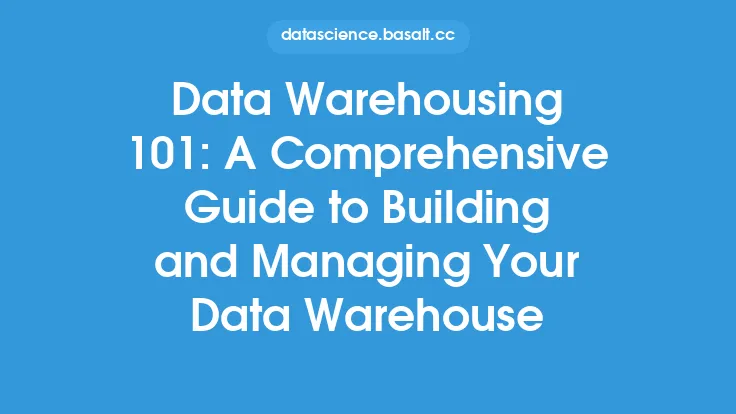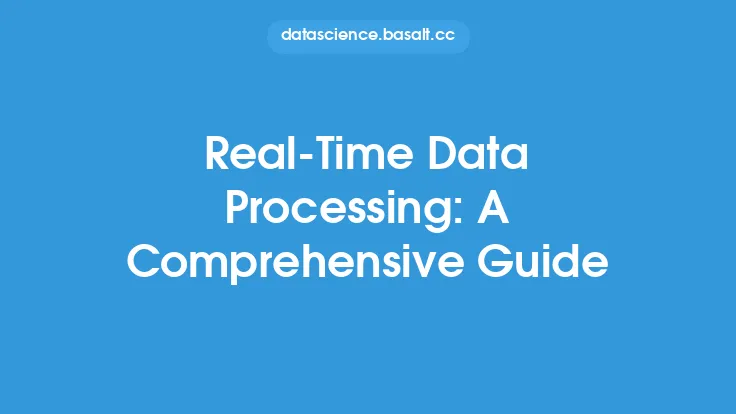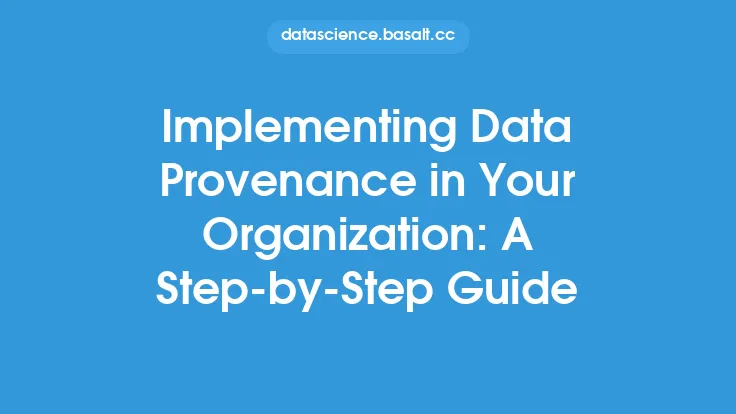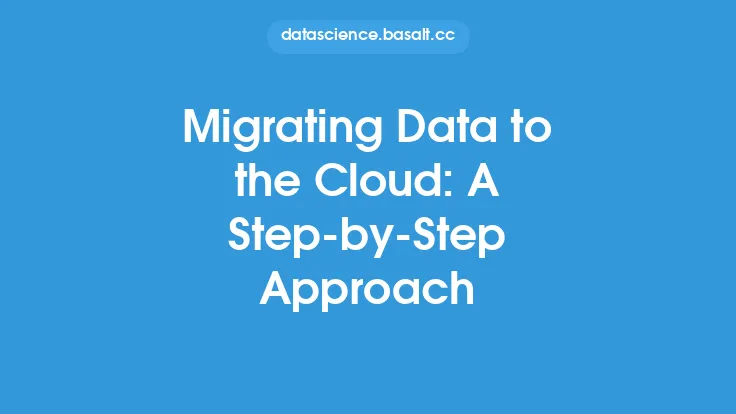Cloud-based data warehousing has revolutionized the way organizations store, manage, and analyze their data. With the advent of cloud computing, businesses can now leverage scalable, on-demand infrastructure to support their data warehousing needs, without the need for expensive hardware and maintenance. In this article, we will delve into the world of cloud-based data warehousing, exploring its benefits, architecture, and best practices for implementation.
Introduction to Cloud-Based Data Warehousing
Cloud-based data warehousing refers to the practice of storing and managing data in a cloud-based environment, where data is processed and analyzed to support business decision-making. This approach has gained popularity in recent years, as it offers a cost-effective, scalable, and flexible alternative to traditional on-premises data warehousing solutions. Cloud-based data warehousing enables organizations to quickly deploy and scale their data warehouses, without the need for upfront capital expenditures or ongoing maintenance costs.
Benefits of Cloud-Based Data Warehousing
The benefits of cloud-based data warehousing are numerous. Some of the most significant advantages include:
- Scalability: Cloud-based data warehouses can scale up or down to meet changing business needs, without the need for expensive hardware upgrades or new equipment purchases.
- Cost-effectiveness: Cloud-based data warehousing eliminates the need for upfront capital expenditures and reduces ongoing maintenance costs, making it a more cost-effective option than traditional on-premises solutions.
- Flexibility: Cloud-based data warehouses can be quickly deployed and configured to support a wide range of data sources and analytics workloads.
- Enhanced collaboration: Cloud-based data warehousing enables teams to collaborate more effectively, by providing a centralized platform for data access and analysis.
- Improved data security: Cloud-based data warehouses typically offer advanced security features, such as encryption, access controls, and auditing, to protect sensitive data.
Architecture of Cloud-Based Data Warehousing
The architecture of cloud-based data warehousing typically consists of several key components, including:
- Data ingestion: This refers to the process of collecting and loading data into the cloud-based data warehouse. Data ingestion can be performed using a variety of tools and techniques, such as ETL (extract, transform, load) processes, data pipelines, and APIs.
- Data storage: This refers to the storage of data in the cloud-based data warehouse. Data storage can be performed using a variety of cloud-based storage solutions, such as object storage, block storage, and relational databases.
- Data processing: This refers to the processing of data in the cloud-based data warehouse. Data processing can be performed using a variety of tools and techniques, such as SQL queries, data transformation, and data aggregation.
- Data analysis: This refers to the analysis of data in the cloud-based data warehouse. Data analysis can be performed using a variety of tools and techniques, such as business intelligence software, data visualization tools, and machine learning algorithms.
Cloud-Based Data Warehousing Solutions
There are several cloud-based data warehousing solutions available, each with its own strengths and weaknesses. Some of the most popular cloud-based data warehousing solutions include:
- Amazon Redshift: This is a fully managed data warehouse service offered by Amazon Web Services (AWS). Amazon Redshift provides a scalable, secure, and high-performance platform for data warehousing and analytics.
- Google BigQuery: This is a fully managed enterprise data warehouse service offered by Google Cloud Platform (GCP). Google BigQuery provides a scalable, secure, and high-performance platform for data warehousing and analytics.
- Microsoft Azure Synapse Analytics: This is a cloud-based data warehouse service offered by Microsoft Azure. Azure Synapse Analytics provides a scalable, secure, and high-performance platform for data warehousing and analytics.
- Snowflake: This is a cloud-based data warehouse platform that provides a scalable, secure, and high-performance platform for data warehousing and analytics.
Best Practices for Implementing Cloud-Based Data Warehousing
Implementing cloud-based data warehousing requires careful planning and execution. Some best practices for implementing cloud-based data warehousing include:
- Define clear business requirements: Before implementing cloud-based data warehousing, it is essential to define clear business requirements and use cases.
- Choose the right cloud-based data warehousing solution: There are several cloud-based data warehousing solutions available, each with its own strengths and weaknesses. Choose a solution that meets your business requirements and use cases.
- Design a scalable architecture: Cloud-based data warehousing requires a scalable architecture that can support changing business needs.
- Implement robust security measures: Cloud-based data warehousing requires robust security measures to protect sensitive data.
- Monitor and optimize performance: Cloud-based data warehousing requires ongoing monitoring and optimization to ensure high performance and scalability.
Common Challenges and Limitations
While cloud-based data warehousing offers many benefits, there are also some common challenges and limitations to be aware of. Some of the most significant challenges and limitations include:
- Data security and governance: Cloud-based data warehousing requires robust security measures to protect sensitive data.
- Data integration and interoperability: Cloud-based data warehousing requires data integration and interoperability with other systems and applications.
- Scalability and performance: Cloud-based data warehousing requires scalable and high-performance architecture to support changing business needs.
- Cost management: Cloud-based data warehousing requires careful cost management to avoid unexpected expenses.
Future of Cloud-Based Data Warehousing
The future of cloud-based data warehousing is exciting and rapidly evolving. Some of the most significant trends and developments include:
- Increased adoption of cloud-native data warehouses: Cloud-native data warehouses are designed specifically for the cloud and offer a scalable, secure, and high-performance platform for data warehousing and analytics.
- Greater emphasis on data security and governance: As cloud-based data warehousing continues to grow, there will be a greater emphasis on data security and governance to protect sensitive data.
- Increased use of artificial intelligence and machine learning: Artificial intelligence and machine learning will play a greater role in cloud-based data warehousing, enabling organizations to automate data processing, analysis, and decision-making.
- Greater integration with other cloud-based services: Cloud-based data warehousing will become more integrated with other cloud-based services, such as data lakes, data pipelines, and business intelligence software.





